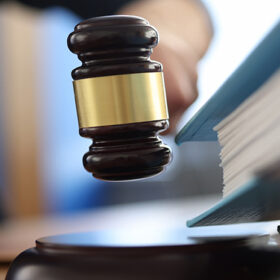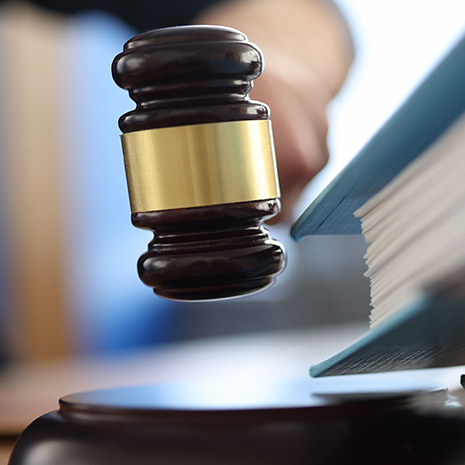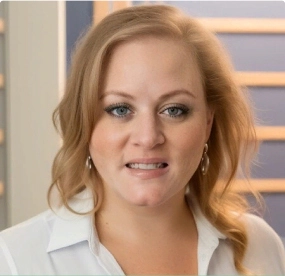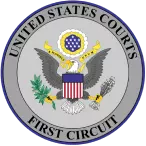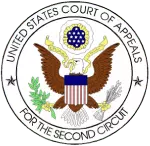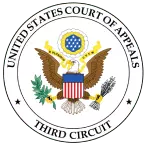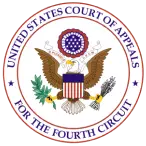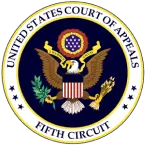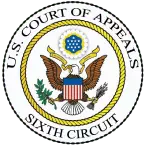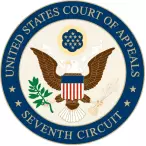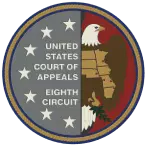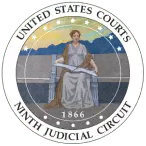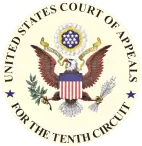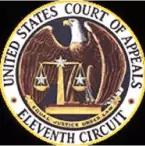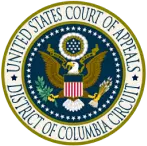If you have been convicted of a federal crime after trial, or you pleaded guilty but received a sentence that was too high – you may need to appeal your case to the Second Circuit Court of Appeals. There are many reasons to consider an appeal, including:
- Inadequate representation by your trial lawyer;
- Improper admission of evidence at trial;
- Incorrect or illegal application of the law by the judge;
- Unfair conduct in the courtroom;
- Prosecutorial misconduct;
- Juror misconduct.
The Second Circuit Court of Appeals is the federal court which hears appeals from convicted individuals who have been found guilty in the Federal District Courts of Connecticut, New York, and Vermont.
If you were convicted of a federal crime in a Federal District Court of one of these three states listed above, you can appeal your case to the Second Circuit Court of Appeals.
Unlike a trial lawyer an appeals lawyer does not present new evidence or witnesses to a jury. An appeal is not a retrial. It is a formal review of the lower court’s decision. In simpler terms, a higher court is reviewing the decision made by a lower court to ensure the trial was conducted fairly and according to federal law.
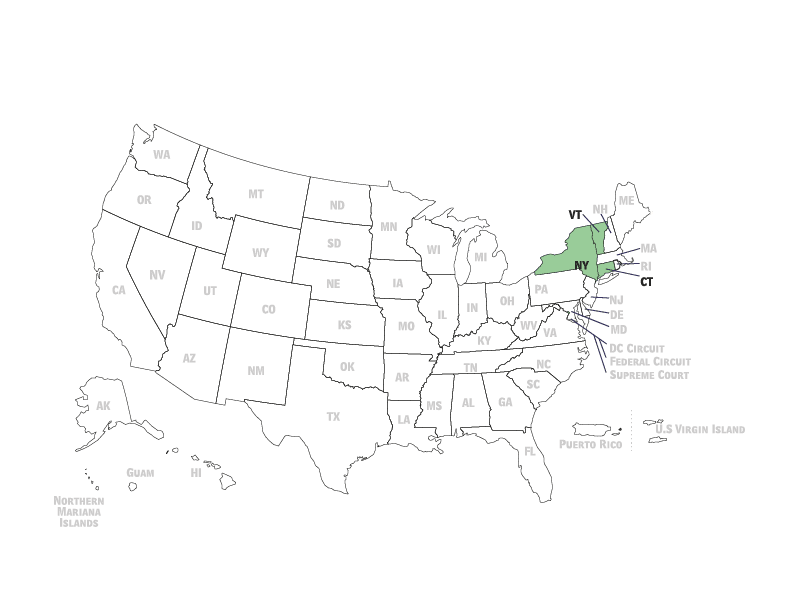
This is particularly significant in federal criminal cases where convicted individuals can appeal their convictions and sentences. The appeals court reviews the case to identify any legal errors that could have impacted the trial outcome.
If such errors are found, the appeals court may reverse the conviction and return the case to the district court for retrial.
If you or someone you love is serving time for an unjust conviction or sentence, don’t try to handle it alone. You need a federal appeals lawyer who knows the ins and outs of the Court of Appeals and will work tirelessly to defend your rights and freedom.
Contact us today to discuss your case.

About the Second Circuit Court of Appeals
Established in 1891, The Second Circuit Court of Appeals is located in New York City and houses 13 active circuit judges who hear various appellate cases. The court resides inside the Thurgood Marshall U.S. Courthouse in lower Manhattan.
Contact Information
Address
40 Foley Square,
New York, NY 10007
Phone
(212) 857-8500
Hours of Operation
10:00 a.m. and 2:00 p.m
Website
https://www.ca2.uscourts.gov/home.html
Second Circuit Court of Appeals Judges
- Debra Ann Livingston
- Jon O. Newman
- Amalya L. Kearse
- John M. Walker, Jr.
- Dennis Jacobs
- Pierre N. Leval
- Guido Calabresi
- José A. Cabranes
- Chester J. Straub
- Rosemary S. Pooler
- Robert D. Sack
- Barrington D. Parker
- Reena Raggi
- Richard C. Wesley
- Gerard E. Lynch
- Denny Chin
- Raymond J. Lohier, Jr.
- Susan L. Carney
- Richard J. Sullivan
- Joseph F. Bianco
- Michael H. Park
- William J. Nardini
- Steven J. Menashi
- Eunice C. Lee
- Beth Robinson
- Myrna Pérez
- Alison J. Nathan
- Sarah A. L. Merriam
- Maria Araújo Kahn
Federal Criminal Appeals in the Second Circuit Court of Appeals
The Second Circuit Court of Appeals hears various cases, including criminal appeals for federal offenses such as:
- Bank & mortgage fraud
- Drug trafficking
- Firearm convictions
- Healthcare fraud
- Hobbs Act & public bribery corruption
- Mail & wire fraud
- RICO & conspiracy
- Securities fraud
- Tax fraud
- White-collar crime
The Second Circuit Court of Appeals is an important institution in the federal judiciary system, particularly in the states it covers. If you or a loved one has been convicted of a federal crime, it is essential to seek the help of a seasoned federal appellate attorney with experience arguing cases before this court.
The attorneys at Elizabeth Franklin-Best can help you navigate the complex appeals process and provide the guidance and support you need to achieve the best possible outcome for your case.
Criminal Appeals Process in the Second Circuit
Once a person has been convicted in the federal district court, an individual or their family can appeal that conviction and sentence to the appropriate appellate court, such as the Second Circuit Appeals Court.
The appeals process typically involves the following:
- Notice of appeal — If an individual or their family wants to appeal the conviction, they must file a notice of appeal with the appropriate appellate court, such as the Second Circuit Appeals Court.
- Record on appeal — Once the notice of appeal has been filed, the lower court will assemble the “record on appeal,” which includes all relevant legal documents and transcripts from the trial.
- Briefing — The individual or their family, through their attorney, will submit a written brief to the appellate court outlining the legal arguments for why the conviction should be overturned.
- Oral argument — The appellate court may schedule an oral argument, where the individual’s attorney will present their arguments before a panel of judges.
- Appellate court decision — The appellate court will review the lower court’s decision and arguments presented by both sides to determine whether any legal errors or constitutional violations occurred during the trial.
- If the appellate court finds in favor of the individual, it may overturn the conviction and remand the case for a new trial or sentencing.
- If the appellate court upholds the lower court’s decision, the individual or their family may appeal further to the Supreme Court.
The federal criminal appeals process can be lengthy and complex. However, having the support and guidance of an experienced federal appellate attorney like Elizabeth Franklin-Best can help ensure that individuals and their families have the best possible chance of success in their appeal.
Why You Need a Second Circuit Federal Appellate Attorney
Appealing to the Second Circuit Court of Appeals can be beneficial in many ways. It is an opportunity to have the conviction or sentence reviewed and potentially overturned, which can positively impact the individual’s life.
However, successfully challenging a conviction or sentence is not an easy feat. Federal criminal appeals are a highly specialized area of law, and navigating the complex rules and procedures of the appellate process can be challenging for those without legal training.
Appellate courts have strict rules and procedures that you must follow, and even a small mistake in legal filings or arguments can lead to a case being dismissed or an appeal being denied.
By working with Elizabeth Franklin-Best, you can have peace of mind knowing that you have an experienced appellate attorney on your side. Our team has years of experience representing clients in federal criminal appeals cases and deeply understands the complex legal issues involved.
We will work tirelessly to protect your rights, navigate the complex appellate process, and present compelling legal arguments to the Second Circuit Appeals Court.
Contact Elizabeth Franklin-Best Today
Take action now and contact our federal appeals lawyers to help you navigate the complexities of a federal criminal appeal. The damage may have been done, but this is not the end of your fight for justice.
You still have options, and a skilled attorney can help you explore them. Don’t let a conviction or sentence define you. Contact us today to protect your rights and fight for your freedom.
FAQ: Second Circuit Criminal Appeals
What should I do if a loved one has been convicted of a federal crime?
A federal criminal conviction can be a difficult and stressful experience for both the individual who has been convicted and their loved ones. It’s important to seek support and guidance from professionals who can help navigate the legal and emotional challenges of the situation. Elizabeth Franklin-Best is committed to providing compassionate and understanding legal representation for individuals and their loved ones facing federal criminal appeals cases.
How do I initiate an appeal to the Second Circuit Court of Appeals?
To initiate an appeal, you must file a Notice of Appeal with the clerk of the district court that handled your case. The notice must be filed within a specific timeframe, usually 14 days after the entry of the judgment or order you wish to appeal.
What options do I have if my appeal is unsuccessful?
If your appeal is unsuccessful, you may have the option to seek further review by petitioning the U.S. Supreme Court. However, the Supreme Court has discretion over which cases it accepts, so there is no guarantee that it will hear your appeal.
Can I raise new issues on appeal that were not raised during my trial?
Generally, the Second Circuit Court of Appeals only considers issues that were properly preserved and raised at the trial court level. Exceptions may exist for certain constitutional claims or if there are exceptional circumstances justifying the consideration of new issues.
Can I be released from custody during the appeal process?
Depending on the circumstances, you may be eligible for release on bail or on your own recognizance while your appeal is pending. This decision is typically made by the district court, and you should consult with your attorney regarding your options.
